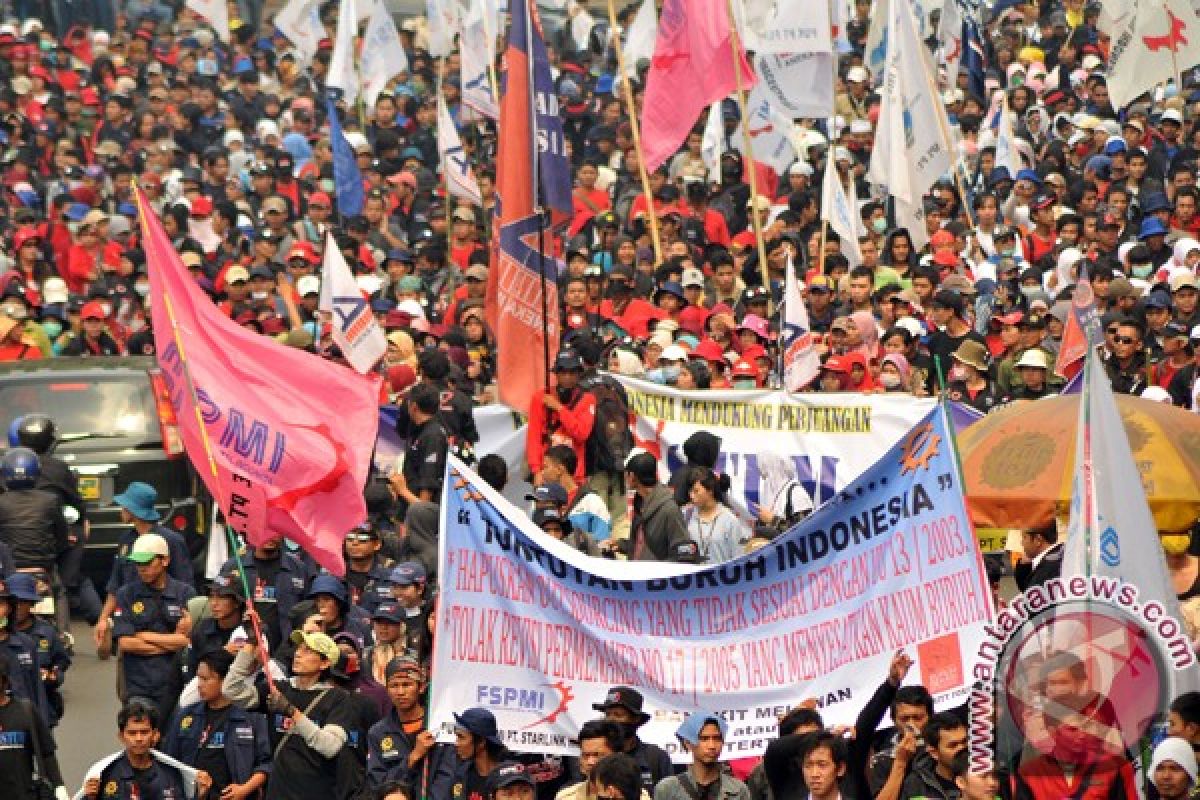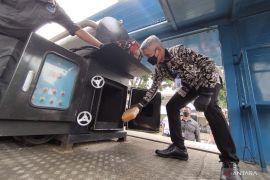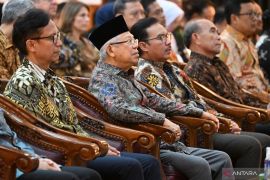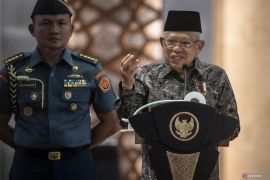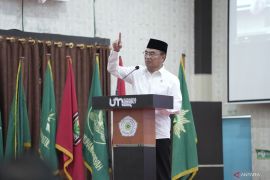The government`s plan to eradicate the outsourcing system, according to the Association of Indonesian Employers (Apindo) chairman Sofyan Wanandi, ignored a previous agreement among labors, employers and the government.Jakarta (ANTARA News) - The government looks set to lift the outsourcing recruitment system but will still maintain it in the recruitment of workers for non-core jobs.
Manpower and Transmigration Minister Muhaimin Iskandar has said that even though the outsourcing system had been lifted, companies would still be allowed to recruit outsourcing workers in five sectors, namely cleaning services, security, catering, transportation and oil and gas mining supporting services.
But the government`s plan to eradicate the outsourcing system, according to the Association of Indonesian Employers (Apindo) chairman Sofyan Wanandi, ignored a previous agreement among labors, employers and the government.
An agreement was reached recently at a meeting of the National Tripartite Cooperation Institute (LKS) which represents the government, employers and trade unions.
In the recent meeting, it was agreed that besides the five non-core jobs, the outsourcing system could also apply to other jobs but must be regulated in a work contract with certain agreed period (PKWT) or a work contract without certain agreed period (PKWTT).
"We have met in mind on a certain point where the outsourcing system will be allowed in the five sectors or with the PKWT or PKWTT contract system," Minister Muhaimin said.
However, investors said they were confused about the government`s plan to abolish the outsourcing system which had so far been opposed by labor unions and is labeled as a modern slavery system.
Sofyan pointed out that the proposals made during the tripartite meeting, which was attended by businessmen, workers and government officials, had been ignored. "The right thing to do would be to change the law and not issue a new regulation that clashes with the industry.s interests," Sofyan said.
He said the outsourcing system was confusing because regulations regarding the system are not clear.
"Investors are confused about the working fields which are allowed to receive workers based on the outsourcing system. The manpower minister said the types of work that could receive outsourcing workers are only five while the law does not state that," Sofyan Wanandi said in a manpower discussion on Tuesday.
He said that the fields which could not receive outsourcing employees were those concerning the core business, which actually also differed in different companies. The manpower discussion focused on the continuation of employment of workers in the outsourcing system.
Sofyan said that the government should not limit the fields for outsourcing workers because what was called core business differed from one company to another.
According to Sofyan Wanandi, it would be better for the government to regulate companies providing outsourcing worker services. The government should take action against naughty outsourcing service providers as many of them have no clear legal basis.
"There are many naughty outsourcing service providers which at will deduct the wages of laborers. Putting in order these companies would be better than abolishing the outsourcing system which is efficient for employers," Sofyan said.
He said that outsourcing system had a lot of benefit for companies employing outsourcing workers. "The system should not be lifted because it proves efficient for employers. It is the worker providers that should be acted upon," the Apindo chairman said.
Sofyan said that the presence of outsourcing workers was very useful for increasing companies` efficiency. "This system has been used in many countries in an effort to increase companies` efficiency," said Sofyan.
In the meantime, General Chairman of the People`s Conscience Party (Hanura), Wiranto said that a fair policy was needed for workers employed under the outsourcing system. "A fair policy is needed so that it would not benefit only one side," he told a dialog with a theme: "Stop Outsourcing, Pay Fair Wages" in Jakarta last week.
He said that companies tended to hire outsourcing workers because they did not want to get a headache in handling trivial matters. "Big and advanced companies prefer to think of core business. Therefore, we need to think of fair wages for outsourcing workers," asserted Wiranto.
Earlier, Yorrys Raweyai, general chairman of the All Indonesian Workers Unions Federation (KSPSI), said the outsourcing system which had been adopted by many companies in the country was a form of slavery in the modern era.
According to Yorrys when delivering his orations during a freedom of expression function in front of thousands of workers in Tangerang, Banten, recently, the government has appreciated the labour union`s opposition to the outsourcing system.
But during the negotiation process through the tripartite body`s dialogues, representatives of the government, employers and laborers were still at odds over the implementation of the system.
"We have told Apindo and the government that the system must be lifted. And we give the government until the end of the year to stop the outsourcing system," said Yorrys.
Muhaimin Iskandar said last week that a new regulation would be issued by the end of this month abolishing outsourcing system of labor recruitment. "The regulation will be issued as soon as possible; not later than the end of October," Muhaimin said.
The announcement came after repeated big labor strikes over the past month in the country.
Labor unions have often staged nationwide protest badly interrupting the process of production in industrial centers.
Muhaimin said on the sidelines of the annual meeting of Asian Productivity Organization (APO) in Denpasar, Bali, outsourcing system could no longer be used for core business workers.
The system could be used only for supporting jobs like security, cleaning service, catering and other non core jobs, he said.
"Companies will be given time to adjust to the regulation and I hope during the period of transition no workers need to be laid off," he said.(*)
Reporter: Andi Abdussalam
Editor: Heru Purwanto
Copyright © ANTARA 2012
